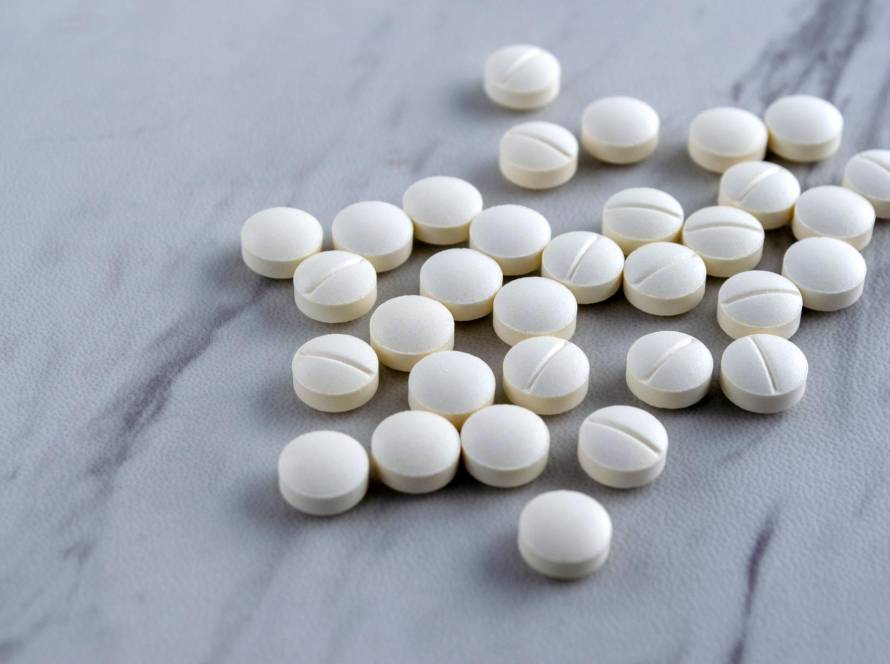Biotin, a significant B vitamin, affects our health so deeply that mild deficiencies affect about one third of pregnant women in the United States. This water soluble vitamin doesn’t get as much attention as other nutrients, yet it serves as a foundation for converting food into energy. Our body’s nervous system, liver, eyes, hair and skin all depend on it.
Let’s see what biotin does for our body and the science behind its proven benefits. We’ll learn whether supplements might work for us. This piece breaks down the latest scientific findings about this vital vitamin and gives us practical information to support our health goals.
What is biotin and how does it work in the body?
Biotin is the life blood of human biochemistry. People also know it as vitamin B7 (formerly vitamin H). This water soluble B complex vitamin is a vital participant in many metabolic processes throughout the body. The body eliminates excess biotin through urine, unlike fat soluble vitamins that build up in tissues. This makes toxicity rare but means we need regular intake.
Biotin as a coenzyme in metabolism
Biotins fundamental role in the body centers on its function as a covalently bound coenzyme for five critical carboxylase enzymes. These carboxylases work as metabolic gatekeepers. They catalyze essential reactions that turn nutrients into energy and building blocks for cellular functions.
Biotins unique value comes from knowing how to transfer carbon dioxide during carboxylation reactions. This helps these enzymes add a carboxyl group to different target molecules. The molecular mechanism powers several key metabolic processes:
- Glucose production: biotin helps convert pyruvate to oxaloacetate through pyruvate carboxylase. This creates a critical step in gluconeogenesis (creating glucose when carbohydrate intake isn’t enough);
- Fat synthesis: biotin enables acetyl-CoA to become malonyl-CoA via acetyl-CoA carboxylases. This marks the first and rate-limiting step in fatty acid synthesis;
- Amino acid metabolism: biotin makes the breakdown of certain amino acids like leucine easier through propionyl-CoA carboxylase and methylcrotonyl-CoA carboxylase.
An enzyme called holocarboxylase synthetase (HCS) attaches biotin to these carboxylase enzymes through biotinylation. This process creates an amide bond between biotin and specific lysine residues in the enzyme structure. The result is the biologically active form needed for metabolism.
Biotinidase, another enzyme, plays a vital role in recycling biotin. It cleaves the vitamin from proteins during their breakdown, which makes free biotin available for reuse. Genetic defects in either holocarboxylase synthetase or biotinidase can lead to multiple carboxylase deficiency. This condition needs biotin supplements.
Role in gene expression and histone modification
Biotin has emerged as a substantial regulator of gene expression. Histones are DNA binding proteins that organize our genetic material into chromatin. They serve as spools around which DNA wraps.
Scientists have discovered that biotin can attach to histones through histone biotinylation. This happens when biotin binds to specific lysine residues in histone proteins, especially in histones H3 and H4. Studies show that biotinylation of lysine-12 in histone H4 (H4K12bio) has important roles in:
- Gene repression and silencing;
- DNA damage repair processes;
- Formation of heterochromatin structures;
- Repression of transposable elements (mobile genetic elements that can cause mutations).
Histone biotinylation is nowhere near common, less than 0.001% of human histones H3 and H4 are biotinylated. Despite this lack, these biotinylation marks appear in strategically important genome regions. They show up especially at repeat sequences and repressed loci, which helps maintain genome stability.
On top of that, biotin influences gene expression beyond histone modification. Research shows biotin affects transcription factors activity. These molecules control gene activation and take part in cell signaling pathways. Through these different mechanisms, biotin influences over 2,000 genes in human cells.
The biotinylation of histones depends directly on dietary biotin supply. This creates a direct link between nutrition and gene regulation. Biotin has become a key player in nutrigenomics, the study of how nutrients influence gene expression.
Biotin benefits for health and beauty
Biotins benefits go way beyond its simple metabolic roles, from giving us glossy hair to supporting brain function. Research shows this vital nutrient helps several aspects of health and beauty. These benefits show up most clearly in people who lack biotin rather than those who already have enough.
Hair and nail strength in deficiency cases
The scientific evidence behind biotin as a beauty supplement mostly focuses on people who lack this nutrient, despite its popular reputation. Research shows that low biotin levels often lead to thinning hair and hair loss. Some case reports showed remarkable results. Children with rare conditions like uncombable hair syndrome saw their hair health improve by a lot after taking 3-5 mg/day biotin for 3-4 months.
The evidence looks stronger for nail health, though it still centers on fixing deficiencies. Three small clinical studies revealed promising results for brittle nails:
- A study found that 2.5 mg/day biotin for 6-15 months increased nail thickness by 25% in people with brittle nails;
- The second study showed 91% of patients with thin, brittle fingernails developed firmer, harder nails after taking 2.5 mg biotin daily for about 5.5 months;
- A third look back study noted 63% of patients’ brittle nails improved after 6-15 months of 2.5 mg/day biotin supplements.
These studies didn’t use placebo groups or check participants’ starting biotin levels, so we should view the results carefully.
Skin health and dermatitis prevention
Biotin’s link to skin health shows up clearly in people who lack it. To name just one example, biotin deficiency usually causes skin rashes, especially scaly red patches around the eyes, nose, mouth and genital areas.
Case reports, mostly in infants, showed that biotin supplements (100 mcg to 10 mg daily) can dramatically improve dermatitis and similar skin conditions. Biotin helps keep the skin’s barrier working properly, possibly by supporting fatty acid metabolism, which our skin needs to stay healthy.
People with normal biotin levels might not see the same benefits from supplements, the evidence isn’t clear yet.
Support for energy metabolism and glucose regulation
Biotin works as a coenzyme for carboxylases that control energy production Not having enough can hurt energy production by reducing how well our body uses glucose and oxidative phosphorylation.
Biotin seems to help especially when we have diabetes. A study with 43 patients with non-insulin dependent diabetes mellitus found their biotin levels were much lower than healthy people’s levels and related inversely to fasting blood glucose. Taking 9mg biotin daily fixed high blood sugar without changing insulin levels.
Biotin supports glucose metabolism in several ways:
- It gets glucokinase to speed up glucose conversion into pyruvate, lowering blood glucose;
- It helps pyruvate carboxylase make glucose, keeping blood sugar stable;
- It makes insulin work better and might increase sensitivity to both natural insulin and diabetes medications.
Neurological and cognitive support
Scientists now recognize biotin’s crucial role in brain health. Not having enough can cause serious neurological symptoms, depression, lethargy, hallucinations, numbness, tingling in extremities and seizures.
A newer body of research reveals biotin’s potential to protect nerves. Studies indicate biotin affects how mitochondria work in neurons. Low biotin can cause mitochondrial problems that lead to oxidative stress and nerve cell death.
High doses of biotin show promise for nervous system conditions. Scientists are learning about biotin’s potential benefits for multiple sclerosis and other neurodegenerative conditions. One key finding shows that high dose biotin can restore mitochondrial biogenesis and prevent energy failure in neurological disease models.
Biotin’s effects on brain function include learning and memory. Studies show that lacking biotin can disrupt these cognitive functions by changing glutamate, glutamine and dopamine levels and protein kinase A activity in the hippocampus.
Biotin rich foods and how to include them in our diet
The quickest way to get enough biotin is through our diet. We can easily meet the recommended 30 micrograms daily intake by choosing the right foods.
Top animal based sources: eggs, liver, salmon
Animal products pack the most biotin punch. Chicken liver stands out as a superstar source, followed by beef liver. Eggs are another great source, as are salmon and other fish.
Plant based options: nuts, seeds, sweet potatoes
Many plants are rich in biotin too. Sweet potatoes lead the vegetable category. Nuts and seeds pack a good biotin punch, with sunflower seeds topping the list.
We’ll also find biotin in mushrooms, avocados, legumes (especially soybeans) and nutritional yeast.
Biotin supplements: when and how to use them
Biotin exists in many foods, yet supplements offer an alternative if we have specific needs. We need to think over our individual health circumstances to decide if these supplements are right for us.
Who may benefit from supplementation
Not everyone needs biotin supplements. Some groups can truly benefit from taking more:
- People with biotinidase deficiency or holocarboxylase synthetase deficiency;
- Individuals on parenteral nutrition without biotin supplementation;
- Pregnant women, as all but one of these women develop marginal biotin deficiency with normal intake;
- Those taking anticonvulsant medications like carbamazepine or phenytoin;
- People with chronic alcohol use or who smoke because their bodies break down biotin faster;
- Individuals who have undergone surgical removal of the stomach.
Risks of high doses and lab test interference
Biotin was once thought to be safe even at high doses. The FDA has now warned about biotin’s interference with laboratory tests.
High dose biotin can affect our lab results:
- Thyroid function tests;
- Troponin tests (used to diagnose heart attacks);
- Vitamin D levels;
- Hormone tests.
The FDA has reported that this interference led to one death from a falsely low troponin test in a patient taking high dose biotin. Tell our healthcare providers about any biotin supplements before lab work.
How to choose a quality supplement
Here’s what matters in picking a biotin supplement:
- Get into our real needs instead of trusting marketing claims;
- Pick reputable brands with third party testing from organizations like USP, UL or NSF International;
- Look for products without unnecessary fillers and binders;
- Choose formats (tablets, capsules, gummies or liquid) that work best for us;
- If we want hair and nail benefits, try formulations with additional supportive ingredients like collagen.
Biotin is a vital nutrient that impacts everything in health through its roles in metabolism, gene expression and cellular function. However, high doses can affect important medical test results. We should tell our healthcare providers about any biotin supplements we take, especially before lab work.
Knowing biotin s health benefits helps make better choices about supplements and diet. Getting enough biotin through food or supplements helps our metabolism, brain function and overall health work at their best.


